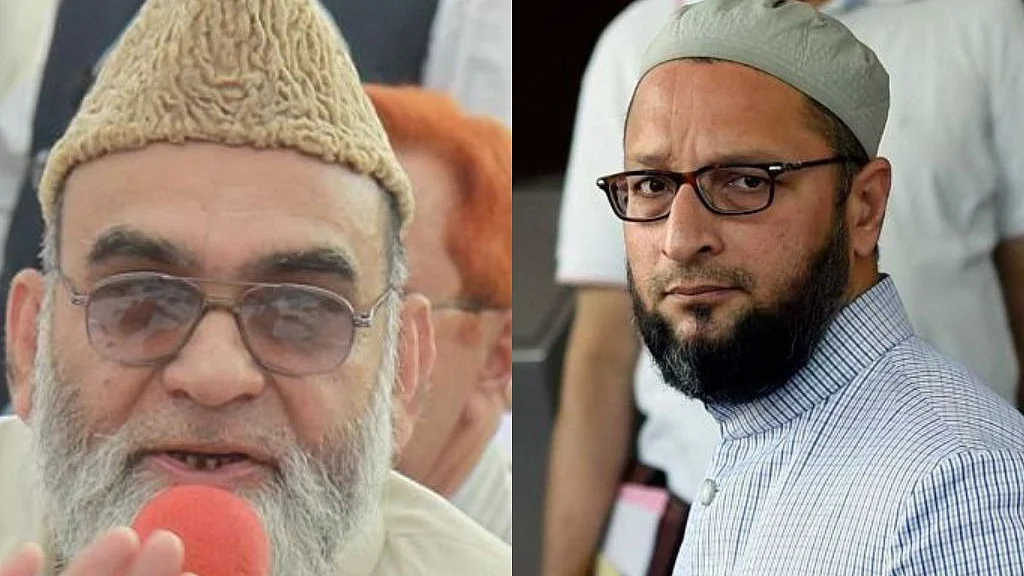Muslim leaders divided over review petition in SC’s Ayodhya verdict
While many including Maulana Ahmed Bukhari feel filing a review petition will be counterproductive, others like AIMIM chief Asaduddin Owaisi are convinced the SC has erred in its judgment

The divide among Muslim leaders over filing a review petition in the Supreme Court in the Babri masjid case is wide open. While the All India Muslim Personal Law Board (AIMPLB), a representative body of the Muslims that has been fighting the case, has decided to go for the review petition, a section of Muslim intelligentsia is not in its favour.
Maulana Syed Ahmed Bukhari of Delhi’s Shahi Jama Masjid says that the festering issue has now been settled by the Supreme Court and that should be the end of it. He underlined that it is clear from the apex court’s order that Muslims have had the moral victory in the case.
Going into the review may again create a bad blood between the Muslims and Hindus, he felt. The Muslim Personal Law Board had on Saturday announced its decision to file the review petition.
“The AIMPLB had been saying all through that they would accept the Supreme Court’s decision, whatever it is. Now they are going back on their words. People should understand that the court’s verdict is not against the Babri masjid,” Bukhari told National Herald.
“There are a few important things that have emerged from the SC order. One, Babri masjid had not been constructed over a demolished temple. Two, placing idols in the masjid in 1949 was illegal and so was masjid’s demolition in December 1992. Third, that namaz used to be performed in the masjid regularly and there is proof of it.
“Going by these points noted by the apex court, it is clear that it is moral victory for the Muslims. So, I don’t think there is a need to go for a review petition,” Bukhari said.
“Besides, even if the court decides in the favour of the Muslim parties, can a masjid be constructed at the disputed site? And suppose that a masjid is somehow constructed there, will it be possible for the Muslims to go and offer namaz there? Considering the present circumstances, it is better that the matter is laid to rest so that the communal harmony and peace is maintained,” he said.
However, the AIMPLB justifies its decision saying that it is one’s constitutional right to ask the court to review its order.
“We are not satisfied with some parts of the judgment and we have a right given to us by the law that we can go into the appeal for rectification of the court’s order. We reached this decision after a four-hour long debate and after considering in detail all the aspects of the situation in the board’s meeting the other day,” Kamal Faruqui, a member of AIMPLB, told National Herald.
Asked if the board thinks that persisting with the matter may disturb communal harmony, Faruqui said: “We are not saying anything against the Hindu parties. We are just asking the court to reconsider parts of its decision. Also, law and order is not our concern. It is that of the government’s.”
“And if people think that our going to the court may disturb communal harmony, then the Muslim parties should not have gone to the court in the first place. They should have let the matter be,” Faruqui said.
Asked if the AIMPLB thinks it is practical to build a mosque at the disputed site, Faruqui said: “Our fight is that of the principles, of the constitutional rights.”
NH has learnt that a number of Muslim scholars in the AIMPLB’s Saturday meeting were against filing any review petition but another section persisted with its point of view and finally prevailed. A number of the board members are said to be not personally happy with the decision.
However, these leaders are avoiding airing their dissent in the open.
Navaid Hamid, president of All India Muslim Majlis-e-Mushawarat, said that he agrees with JUH chief Maulana Arshad Madani’s opinion. Arshad Madani has said that though the Muslim leaders are conscious of the fact that review petition is not likely to change things, but still they would like to exhaust all legal options at their disposal.
“Once a decision has been taken (to go for review petition), all sections of Muslims should support it now,” Hamid said.
A source in the Maulana Mehmood Madani faction of Jamiat Ulema-e-Hind (JUH) said that the body will internally discuss the Ayodhya verdict in its working committee meeting on November 20.
Majlis-e-Ittehadul Muslimeen (AIMIM) president and Lok Sabha MP from Hyderabad Asaddudin Owaisi has also supported the decision to file a review petition in the supreme court, contending that it was the right of the aggrieved party to file a review plea.
He has even said that since the SC has upheld that no temple was demolished to build the Babri masjid, the Muslims must get the masjid back that was razed on December 6, 1992 by a Hindutva crowd.
Iqbal Ansari, the son of Hashim Ansari who was the original litigant in the case, too has said that he is not in favour of filing any review petition in the SC verdict.
Follow us on: Facebook, Twitter, Google News, Instagram
Join our official telegram channel (@nationalherald) and stay updated with the latest headlines
- Supreme Court
- Babri Masjid
- All India Muslim Personal Law Board
- Ahmed Bukhari
- Ayodhya case
- Ramjanmabhoomi-Babri Masjid
